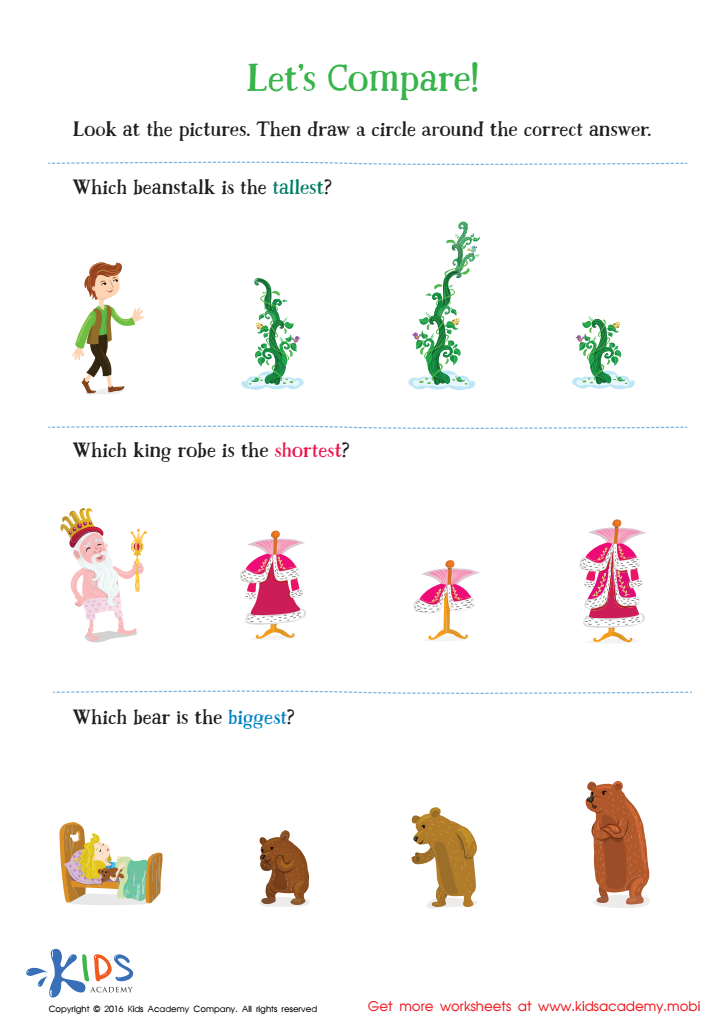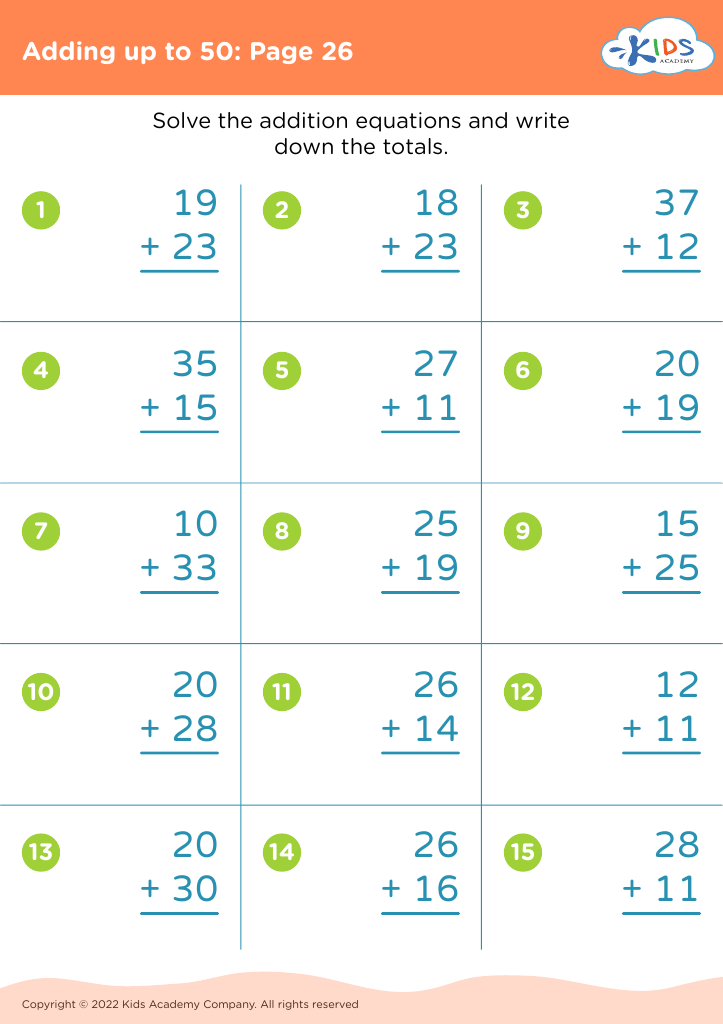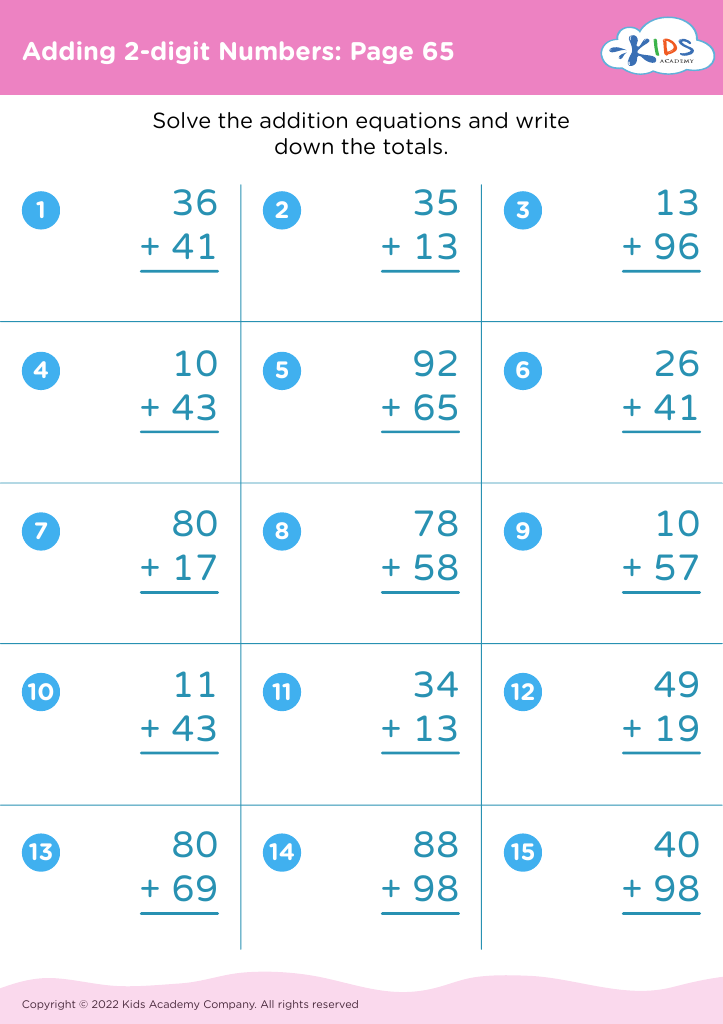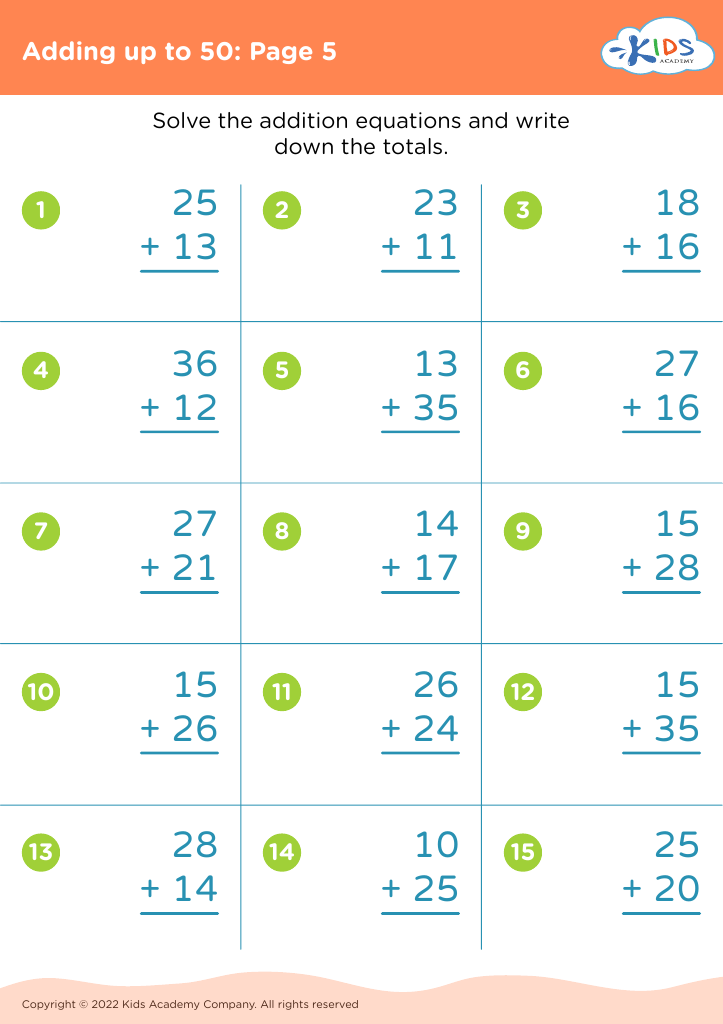Understanding adjectives Math Worksheets for Ages 3-9
6 filtered results
-
From - To
Discover our engaging "Understanding Adjectives Math Worksheets" tailored for children ages 3-9! These worksheets provide a fun and interactive way for young learners to grasp the concept of adjectives while building essential math skills. Each activity encourages children to identify and use descriptive words in combination with math problems, enhancing both vocabulary and problem-solving abilities. Perfect for home or classroom use, our worksheets promote critical thinking through colorful visuals and age-appropriate challenges. Help your child develop a strong foundation in language and mathematics with these creative educational tools. Start your learning journey today and watch their confidence grow!


Fairy Tale Worksheet: Let's Compare
Understanding adjectives, though traditionally linked to language arts, plays a crucial role in math comprehension for children ages 3-9. Adjectives are descriptive words that add depth to understanding and categorizing numbers, shapes, and patterns. When children grasp adjectives such as "big," "small," "tall," "short," "more," and "fewer," they enhance their ability to describe quantities, dimensions, and relationships in mathematical contexts.
Parents and teachers should recognize that employing adjectives in math activities fosters critical thinking and vocabulary development. For instance, when discussing shapes, terms like "round," "smooth," or "angular" facilitate better spatial reasoning and understanding of geometric properties. Similarly, using adjectives in word problems helps children visualize and interpret scenarios, making abstract concepts more tangible.
Moreover, the incorporation of adjectives can motivate children to engage more actively with math by making it relatable and enjoyable. Recognizing qualities and characteristics in objects leads to enhanced observational skills and problem-solving abilities. Consequently, supporting children in understanding adjectives not only enriches their mathematical language but also lays a solid foundation for future academic success. Therefore, fostering an environment where adjectives are celebrated in mathematical discourse is vital for holistic childhood education.




 Assign to My Students
Assign to My Students








.jpg)













